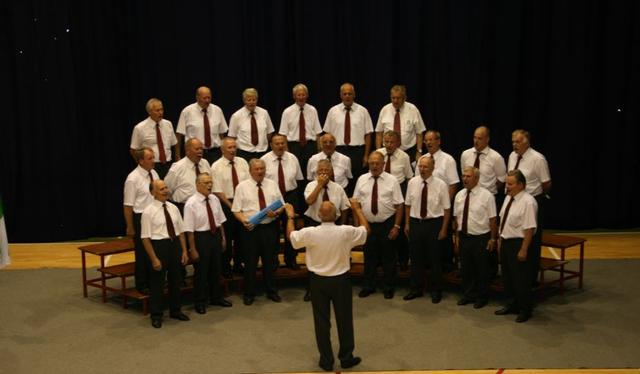
When World War II swept across Europe, Slovenia was occupied by and partitioned among the Axis powers. Resistance troops were driven to the woods and the countryside, where they carried on their struggle. Amidst the carnage, something truly unique emerged: a choir made up of handicapped singers – mostly soldiers who had been wounded in the conflict.
The Handicapped Choir was founded in 1944 in the southern Slovenian region of Bela Krajina. At the time, most of Slovenia was controlled by the Axis occupation forces, but the region was in the hands of the Partisan resistance. The newly formed choir consisted of both soldiers who had been left handicapped in the conflict or who were recuperating from serious injuries. A respected composer named Karol Pohar was the first choirmaster.
Within weeks of being founded, the choir had entertained hundreds of locals and soldiers with patriotic tunes. As the only choir for handicapped soldiers in all of Europe, it also represented a light of hope and humanity amidst all the suffering caused by the continent’s bloodiest conflict.
The legacy of the Handicapped Choir was so important that it continued to live on after the war ended. Able-bodied singers joined the ensemble, which became known as the Partisan Choir. Under the leadership of Radovan Gobec, it attained a high profile around the world and performed in both the East and the West, from the Republic of Georgia to the Netherlands.
Many of the choir’s performances have been published over the years, and its CDs remain big sellers. Some of the songs date back to the Partisan era, but the choir also performs a miscellany of patriotic songs written in the last century – a time when the Slovenian people fought to join the community of nations. At the same time, the choir remains open to new works from Slovenia’ up-and-coming musicians.
Over the years, the Partisan Choir has performed more than 3000 times and has won the Prešeren Prize, Slovenia’s most prestigious award in the field of culture. Now consisting of 40 members, the choir is still busy introducing Slovenian culture to the world and celebrating it legacy, which symbolizes the enduring power of music even in the most difficult of circumstances.
Jaka Bartolj

































































